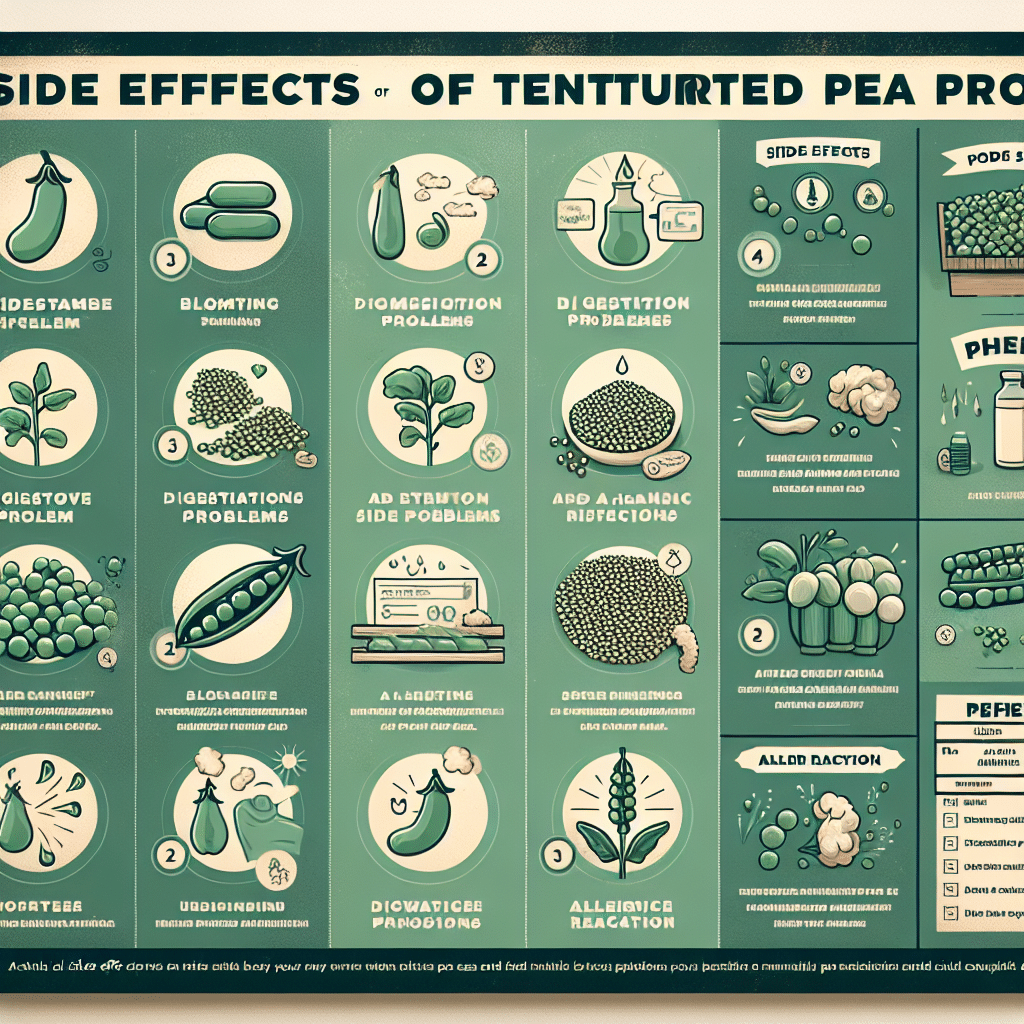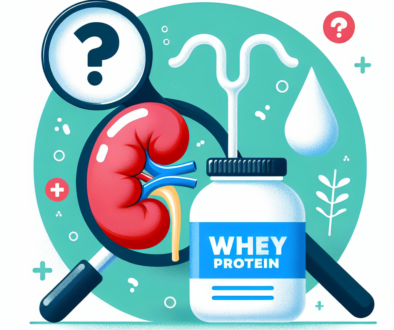What Are The Side Effects Of Textured Pea Protein?
-
Table of Contents
- Textured Pea Protein Side Effects: What You Need to Know
- Understanding Textured Pea Protein
- Potential Digestive Side Effects
- Allergic Reactions and Sensitivities
- Nutritional Considerations
- Impact on Kidney Function
- Interactions with Medications
- Environmental and Sustainability Concerns
- Case Studies and Research
- Conclusion: Balancing Benefits and Side Effects
- Discover ETprotein’s High-Quality Protein Products
Textured Pea Protein Side Effects: What You Need to Know

Textured pea protein has become a popular ingredient in many plant-based foods, offering a meat-like texture and a high protein content. As consumers increasingly seek out vegetarian and vegan options, the demand for textured pea protein has surged. However, as with any food product, it’s important to be aware of potential side effects. This article explores the side effects of textured pea protein, supported by research, examples, and statistics.
Understanding Textured Pea Protein
Textured pea protein is derived from yellow peas and is often used as a meat substitute in vegan and vegetarian products due to its fibrous, chewy texture. It’s a complete protein, containing all nine essential amino acids, making it an excellent protein source for those on plant-based diets.
Potential Digestive Side Effects
While textured pea protein is generally considered safe for consumption, some individuals may experience digestive side effects. These can include:
- Bloating and Gas: Pea protein contains oligosaccharides, which can cause bloating and gas in some individuals, especially those with sensitive digestive systems.
- Stomach Discomfort: High protein intake, particularly from sources like pea protein, can sometimes lead to stomach discomfort or indigestion.
Allergic Reactions and Sensitivities
Although pea protein allergies are less common than other food allergies, they can occur. Symptoms of an allergic reaction may include:
- Skin reactions such as hives or rashes
- Respiratory issues like wheezing or difficulty breathing
- Gastrointestinal discomfort
Those with known legume allergies should be cautious when consuming textured pea protein and consult with a healthcare provider.
Nutritional Considerations
Textured pea protein is rich in protein and fiber but lacks certain nutrients found in animal proteins. It’s important to ensure a balanced diet to compensate for these differences. Additionally, some pea protein products may be high in sodium or contain added sugars, which could have health implications if consumed in excess.
Impact on Kidney Function
High protein diets have been associated with increased strain on the kidneys, particularly in individuals with pre-existing kidney conditions. While pea protein is a healthy option for many, those with kidney issues should monitor their protein intake and consult with a healthcare professional.
Interactions with Medications
Pea protein may interact with certain medications, such as those for lowering blood pressure or controlling blood sugar levels. It’s important to discuss dietary changes with a healthcare provider if you’re on medication.
Environmental and Sustainability Concerns
While not a direct side effect on health, the environmental impact of producing textured pea protein is a consideration for some consumers. Pea protein is often touted as a more sustainable and eco-friendly alternative to animal protein, but it’s important to consider the source and production methods when evaluating its environmental footprint.
Case Studies and Research
Research on the side effects of textured pea protein is still emerging. However, studies on pea protein isolate, a similar product, suggest that it is well-tolerated by most individuals. A study published in the Journal of the International Society of Sports Nutrition found that pea protein supplementation was effective and did not cause more gastrointestinal issues than whey protein.
Conclusion: Balancing Benefits and Side Effects
Textured pea protein offers many benefits as a plant-based protein source, but it’s important to be aware of potential side effects. Most individuals can consume pea protein without issues, but those with sensitivities, allergies, or certain health conditions should proceed with caution. As with any dietary change, it’s advisable to consult with a healthcare provider, especially if you have underlying health concerns.
Discover ETprotein’s High-Quality Protein Products
If you’re looking for a reliable source of plant-based proteins, ETprotein offers a range of products that cater to various dietary needs. Their textured pea protein is characterized by a neutral taste and is non-GMO and allergen-free. ETprotein’s commitment to quality ensures that you’re getting a product that’s not only nutritious but also sustainable and environmentally friendly.
About ETprotein:
ETprotein, a reputable protein and L-(+)-Ergothioneine (EGT) Chinese factory manufacturer and supplier, is renowned for producing, stocking, exporting, and delivering the highest quality organic bulk vegan proteins and L-(+)-Ergothioneine. They include Organic rice protein, clear rice protein, pea protein, clear pea protein, watermelon seed protein, pumpkin seed protein, sunflower seed protein, mung bean protein, peanut protein, and L-(+)-Ergothioneine EGT Pharmaceutical grade, L-(+)-Ergothioneine EGT food grade, L-(+)-Ergothioneine EGT cosmetic grade, L-(+)-Ergothioneine EGT reference grade and L-(+)-Ergothioneine EGT standard. Their offerings, characterized by a neutral taste, non-GMO, allergen-free attributes, with L-(+)-Ergothioneine purity over 98%, 99%, cater to a diverse range of industries. They serve nutraceutical, pharmaceutical, cosmeceutical, veterinary, as well as food and beverage finished product distributors, traders, and manufacturers across Europe, USA, Canada, Australia, Thailand, Japan, Korea, Brazil, and Chile, among others.
ETprotein specialization includes exporting and delivering tailor-made protein powder and finished nutritional supplements. Their extensive product range covers sectors like Food and Beverage, Sports Nutrition, Weight Management, Dietary Supplements, Health and Wellness Products, and Infant Formula, ensuring comprehensive solutions to meet all your protein needs.
As a trusted company by leading global food and beverage brands and Fortune 500 companies, ETprotein reinforces China’s reputation in the global arena. For more information or to sample their products, please contact them and email sales(at)ETprotein.com today.














